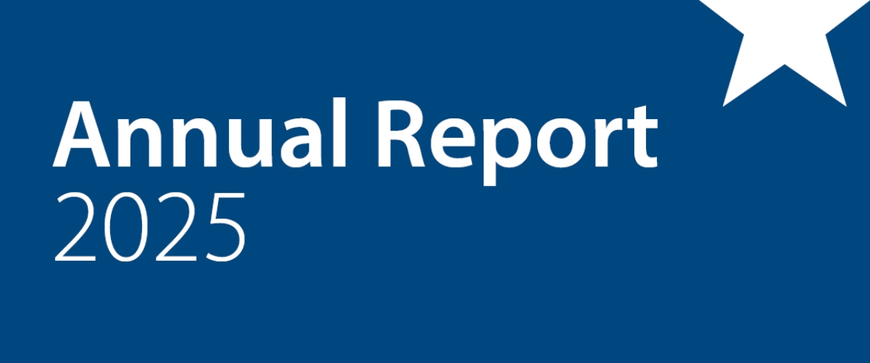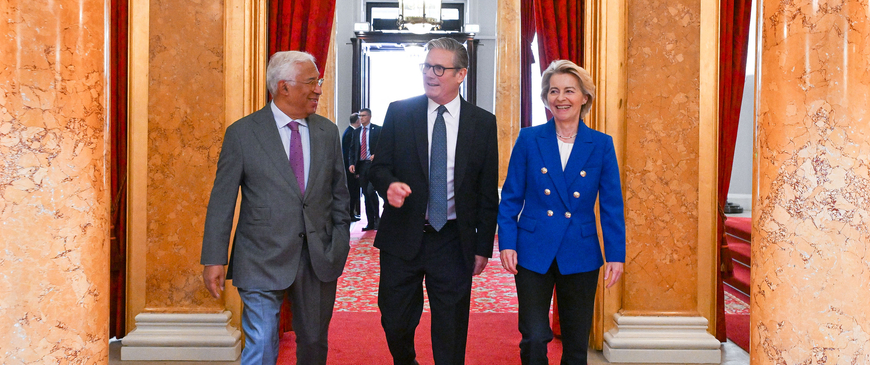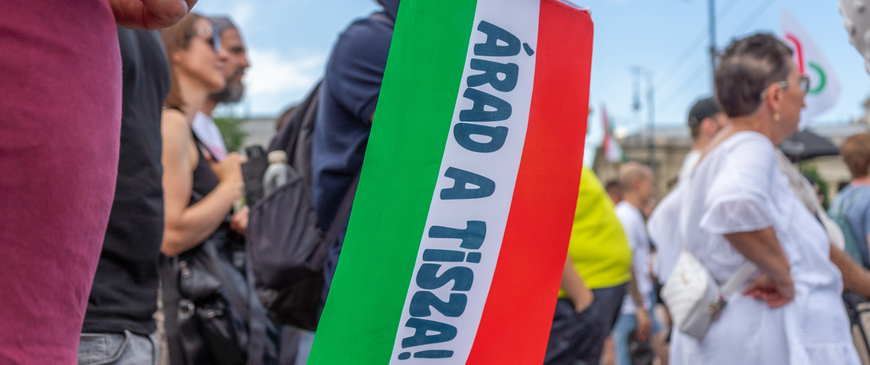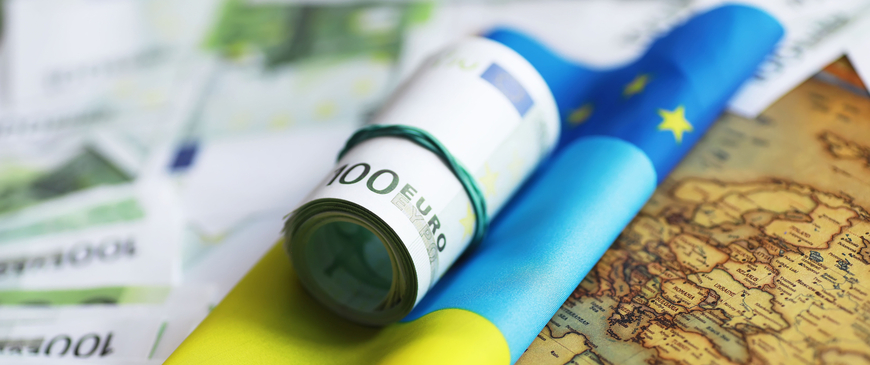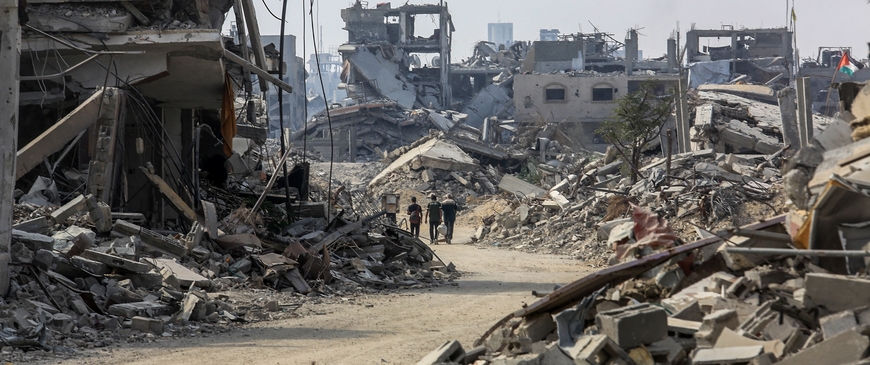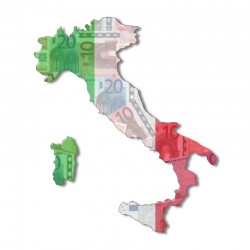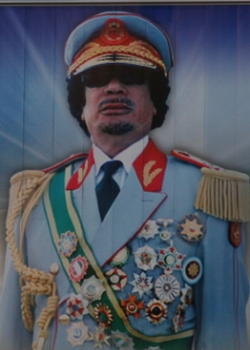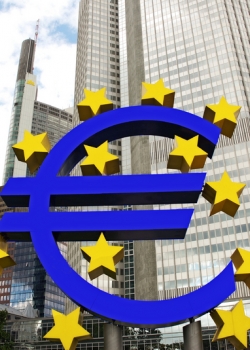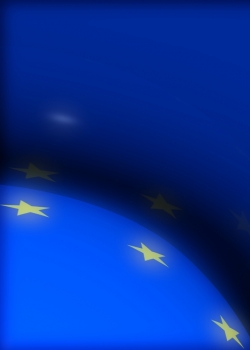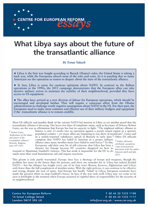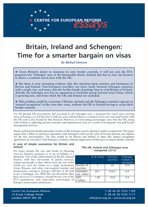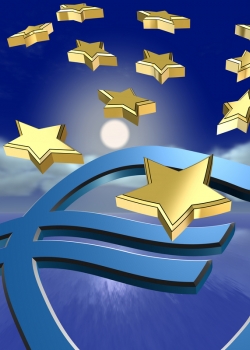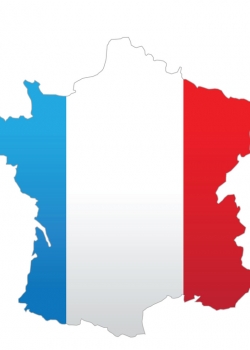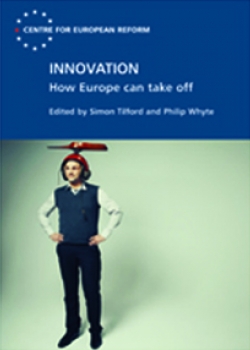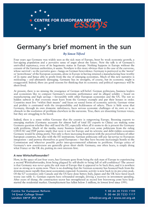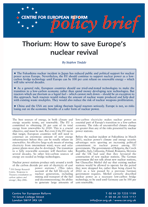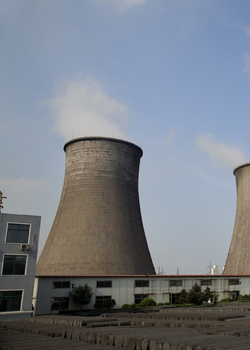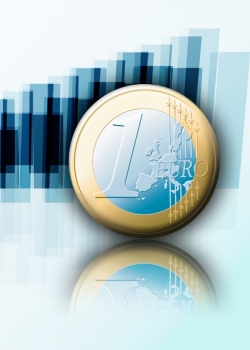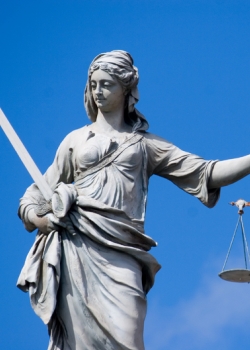Research
Eurozone crisis: Can contagion to Italy be arrested?
05 August 2011
The eurozone's debt crisis has spread to Italy. It is becoming increasingly doubtful that much-needed domestic economic reforms will be sufficient to restore market confidence in the country.
Britain draws the wrong lessons from Libya
01 August 2011
When it comes to defence, the United Kingdom is giving up on the EU. For most Britons, the war in Libya has confirmed that the majority of European countries are simply not serious about defence.
Was the euro summit a game changer?
01 August 2011
The pattern is now familiar. After prolonged and very public bickering, European leaders convene in Brussels to try and restore flagging confidence in the eurozone.
Europe's date with destiny
01 August 2011
Many people have quietly given up on the European Union. Not too long ago, Europe struggled long and hard to ratify the Lisbon treaty – now barely mentioned.
What Libya says about the future of the transatlantic alliance
29 July 2011
Libya is the first war fought according to Barack Obama's rules, with the United States taking a back seat. The Europeans responded well: by taking decisive military action to maintain the stability of their neighbourhood.
Britain, Ireland and Schengen: Time for a smarter bargain on visas
28 July 2011
Travellers to the Schengen area – the EU's passport-free travel zone – can move freely between most EU countries but need separate visas for Britain and Ireland, which maintain their own border controls.
Why the eurozone needs debt mutualisation
28 July 2011
The attempt to run a common monetary policy without a common treasury has failed. Debt mutualisation is necessary if the eurozone is to survive.
Bulletin Issue 79 - 2011
22 July 2011
- Was the euro summit a game changer?, Philip Whyte
- Europe's date with destiny, Hugo Brady
- Britain draws the wrong lessons from Libya, Clara Marina O'Donnell
Marine Le Pen and the rise of populism
20 July 2011
Marine Le Pen's anti-EU populism resonates in much of northern Europe. Debating the CER's director, Charles Grant, she claimed she was neither left nor right.
The new EU budget: A missed opportunity
11 July 2011
The Commission's proposals for the EU's 2014-2020 budgets are a missed opportunity, representing no substantial change. Spending on agriculture should be greatly reduced, that on cohesion re-focused and that on climate greatly increased.
Repowering communities: Small-scale solutions to large-scale energy problems Energy policy is at a crossroads
11 July 2011
Attempts to meet targets for carbon emissions, energy security and affordable energy for vulnerable households are all on a trajectory to failure.
Innovation: How Europe can take off
08 July 2011
Every EU government supports innovation, believing that it will help Europe to meet the numerous economic, social and environmental challenges that it faces.
Germany's brief moment in the sun
27 June 2011
Four years ago, Germany was widely seen as the sick man of Europe, beset by weak economic growth, a fast-ageing population and a pervasive sense of angst about the future.
Financial regulation: Britain the perennial outlier?
20 June 2011
Back in 2007, when the Labour government had abolished the business cycle and the City of London was booming, British policy-makers liked to vaunt the merits of ‘light touch’ regulation.
Thorium: How to save Europe's nuclear revival
15 June 2011
The EU should continue to support nuclear power. Existing technologies should generally be used. But thorium liquid fuel reactors – which cannot melt down – should be an exception.
Carbon capture and storage: EU advancing, but not fast enough
03 June 2011
TGAE report
Carbon capture and storage (CCS) is an essential low-carbon bridge technology, to be used in the several decades it will take before Europe can be totally reliant on renewable energy.
Trio leadership: The need to liberalise the European defence market
03 June 2011
TGAE report
Over the last year, renewed defence spending cuts in many EU member-states have increased the need for closer EU defence co-operation. European governments have long acknowledged that significant savings could be gained through more common procurement in defence, joint logistics and common ownership of the most expensive military capabilities. In...
EU ministers tackle defence austerity
01 June 2011
How do you do more with less? The EU defence ministers agreed last week that the way to limit the impact of the economic crisis on their defence budgets lies in more co-operation.
Eurozone debt crisis: To restructure or not?
01 June 2011
In March, European leaders agreed a 'grand bargain' that was designed to restore flagging confidence in the eurozone. The deal, they hoped, would return the most troubled countries – Greece, Ireland and Portugal – to debt sustainability and prevent catastrophic contagion to other, larger economies such as Italy and Spain.
The politics of European justice
01 June 2011
The EU's least understood institution is its Court of Justice, which is seated in a stockade-like building in Luxembourg. For over half a century, judges there have quietly adjudicated, mainly between European governments, institutions and businesses.

